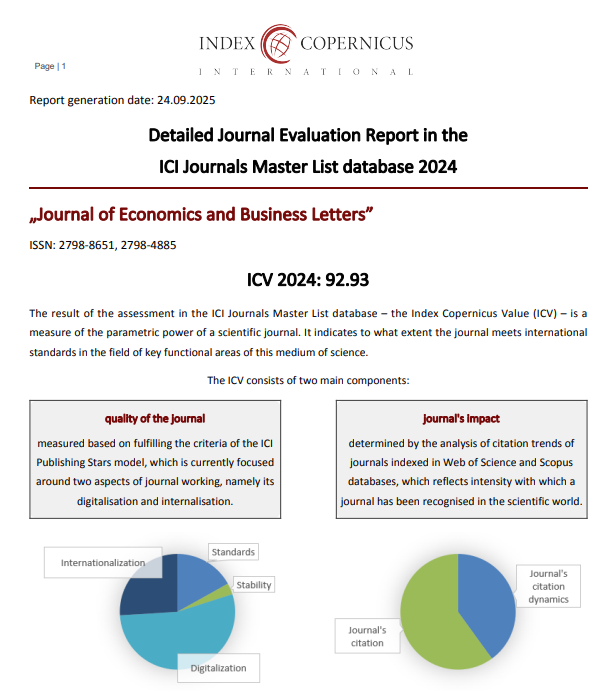Boardroom integrity and the crusade against fraud: Navigating corporate governance in Indonesia
DOI:
https://doi.org/10.55942/jebl.v2i1.279Keywords:
Corporate Governance, Financial Statement Fraud, Ethical Leadership, Board Size, Indonesian CorporationsAbstract
This study delves into the intricate landscape of corporate governance within Indonesian corporations, scrutinizing its efficacy in deterring financial statement fraud. By amalgamating insights from a systematic literature review, quantitative analyses of secondary data, and logistic regression methods, the research elucidates the multifaceted interplay between various governance mechanisms and the persistence of fraudulent activities. Central to our findings is the pivotal role of board size in enhancing corporate oversight and mitigating fraud, juxtaposed against the ambiguous impacts of other governance elements such as audit committee effectiveness and board experience. This complexity underscores the paramount importance of ethical leadership and the "tone at the top" in fostering a corporate culture steeped in integrity, which is instrumental in fraud prevention. The paper posits that the dual focus on strengthening structural governance frameworks and nurturing ethical corporate leadership is essential for safeguarding Indonesia's economic integrity and promoting sustainable development. Through this lens, the study not only contributes to the academic discourse on corporate governance but also offers actionable insights for policymakers, corporate leaders, and regulatory bodies striving to combat corporate fraud in Indonesia.
References
laessens, S. (2006). Corporate governance and development. The World bank research observer, 21(1), 91-122.
Bebchuk, L., Cohen, A., & Ferrell, A. (2009). What matters in corporate governance?. The Review of financial studies, 22(2), 783-827.
Brown, P., Beekes, W., & Verhoeven, P. (2011). Corporate governance, accounting and finance: A review. Accounting & finance, 51(1), 96-172.
Cadbury, A. (2002). Corporate governance and chairmanship: A personal view. OUP Oxford.
Fahlevi, M., & Juhandi, N. (2019). The Impact of CGPI Award towards Financial Performance of LQ45 Firms. In The 2nd International Conference on Inclusive Business in The Changing World.
Hermalin, B. E. (2005). Trends in corporate governance. The Journal of Finance, 60(5), 2351-2384.
Jannah, M., Fahlevi, M., Paulina, J., Nugroho, B. S., Purwanto, A., Subarkah, M. A., & Cahyono, Y. (2020). Effect of ISO 9001, ISO 45001 and ISO 14000 toward financial performance of Indonesian manufacturing. Systematic Reviews in Pharmacy, 11(10), 894-902.
Juhandi, N., Zuhri, S., Fahlevi, M., & Noviantoro, R. (2020). Information Technology and corporate governance in fraud prevention. In E3S Web of Conferences (Vol. 202, p. 16003). EDP Sciences.
Juhandi, N., Saefudin, Z., Mochammad, F., Rinto, N., & Setiadi, H. (2020). Information technology and corporate governance in fraud prevention. In E3S Web of Conferences 202, 16003 (2020) https://doi. org/10.1051/e3sconf/202020216003 ICENIS 2020.
Suwarni, R. N., Fahlevi, M., & Abdi, M. N. (2020). Startup valuation by venture capitalists: An empirical study Indonesia firms. International Journal of Control and Automation, 13(2), 785-796.
Thomsen, S. (2004). Corporate values and corporate governance. Corporate Governance: The international journal of business in society, 4(4), 29-46.
Yermack, D. (2017). Corporate governance and blockchains. Review of finance, 21(1), 7-31.
Downloads
Published
How to Cite
Issue
Section
License
Copyright (c) 2022 Journal of Economics and Business Letters

This work is licensed under a Creative Commons Attribution 4.0 International License.
















